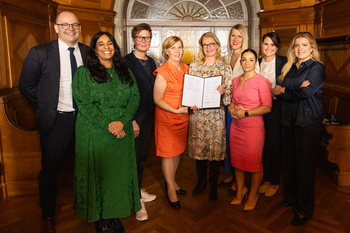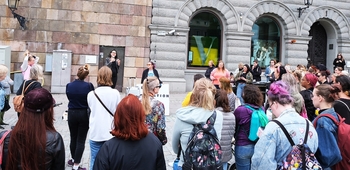More parallel, please! - New Nordic report on parallel language

On 5 May, the Nordic group for parallel language will publish its 11 recommendations at the conference, “More parallel, please” at the National Library of Norway in Oslo. The working group has been following language practices at internationalised universities in the Nordic Region for three years. The Nordic Council of Ministers tasked the working group with formulating proposals for an effective language policy that encompasses bilingualism and multilingualism. The report urges universities to consider internationalisation and language policy together in order to improve the quality and efficiency of teaching, research, and administration.
“We hope our work can inspire universities to integrate language policy into their internationalisation efforts,” says professor Frans Gregersen, who has led the group’s investigations.
“Language policy should contribute to a good linguistic balance and ensure that Nordic universities retain their attractive international profiles while also fulfilling their own national language obligations,” he continues.
The recommendations have a “both/and” rather than an “either/or” approach. The report discusses linguistic choices in different contexts, and also discusses the requirements that should be set for language quality and language skills among staff and students. Furthermore the group proposes that the universities’ language policies are monitored, and that language centres at the universities develop courses and offer language resources based on needs assessments.
In a communication situation involving many languages, it is also possible to draw on the Nordic model of neighbouring languages, whereby we communicate with each other across linguistic borders. This has the advantage of allowing participants to express themselves using natural nuances and with precision, because they are speaking the language they know best. And this applies to everyone involved, whichever their primary language.
The conference is part of the programme for the Norwegian Presidency of the Nordic Council of Ministers for Education and Research in 2017.




